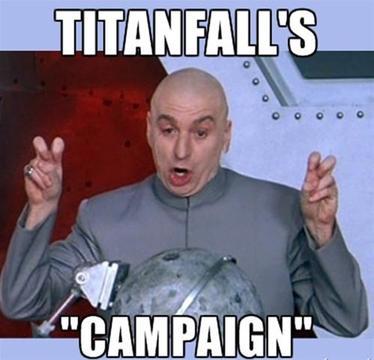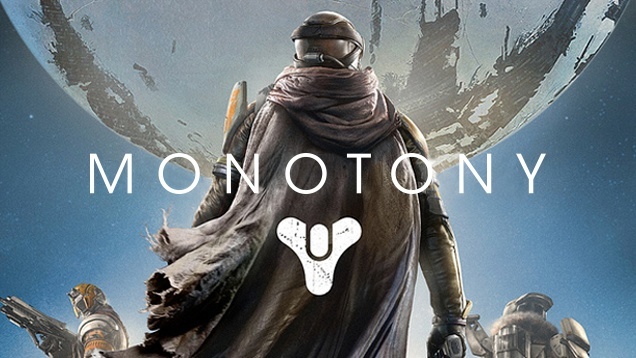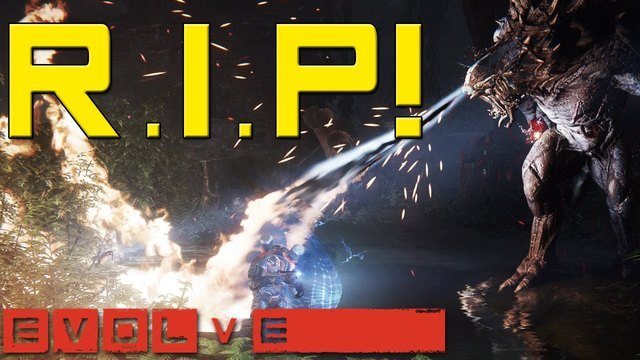For those of you out there that don’t care for multiplayer/online-only video games, don’t fret, they are not the solitary future of the industry.
For a few years now many have professed a multiplayer-only future, in which no game will have a single-player campaign. This theory came about due to the excess of such games announced and released in the past few years, i.e. Destiny, Evolve, The Crew, Star Wars Battlefront, Tom Clancy’s: The Division, Titanfall, Smite, DayZ, and many more.
However, there is a much more evident pattern emerging with all of these games; an expiry date. If you look at Evolve, a game that had an incredible promotion, was released to positive reviews and “sold-in over 2.5 million units“, and yet the player base dropped off incredibly fast. Even with the latest batch of DLC, the player base for Evolve has not returned. The same can be said for Titanfall and The Crew, and we’ll see what happens with Splatoon.
Manifest Destiny
Of course, there are exceptions to the rule, Destiny, for example, has managed to maintain an impressive fan base. As has Smite, State of Decay and PC classics W.O.W, DOTA, and League of Legends. That being said I believe the PC games are a different case entirely and don’t reflect the state of console multiplayer games.
Destiny has been a great success for Bungie, despite being obviously lacking in content at release. Which is another trend with these games, they somehow manage to release with only half of the features and modes, Splatoon being a great example of that. So why is Destiny successful and others are not? There doesn’t seem to be an obvious answer to that questions, but there are a lot of factors. For one, Destiny is very accessible and offers a grind that keeps players coming back again and again.

Destiny isn’t convoluted, and that makes it easy to jump into. It also rewards players fairly regularly, and the team aspect of it seems to have really caught on more than it did with Evolve.
Play It For The Plot
Then there’s the lack of features in many games that were mentioned previously. Splatoon has no voice chat and Nintendo has promised new modes once the players have “levelled-up”. The idea of a developer holding off on game modes until it thinks you are ready is preposterous. Then there’s Tom Clancy’s: Rainbow Six Siege, for all intents and purposes a multiplayer game.
Of course, Ubisoft has said there will be a reason for single-player gamers to play the game but they way they have described it is all-too reminiscent of Titanfall. They won’t comment on the scope of the campaign, and they said they included it as a result of comments from gamers, so it seems more like an afterthought. Expect a pseudo-campaign.
But the lack of a dedicated campaign isn’t the problem with Rainbow Six Siege, the problem is the repetition. Similarly, like Evolve, the game is based around 4-person teams in small maps. Now don’t get me wrong, the multiplayer footage that has been shown looks fun and interesting but, other than a few varying modes, what we’ve seen so far is essentially the entire game. Is a game in which you continuously play small 4v4 maps really worth $60? I guess that’s up to the players, and we will see if the fall of Titanfall and Evolve will play a role in these future games.
The more and more online-only games are released, the more we see the need for a single-player component of some kind. This was recently stated outright by Take-Two Interactive CEO Strauss Zelnick, at the 43rd Annual Technology, Media & Telecom Conference in New York. Zelnick was discussing Evolve and called it a “permanent” franchise for Take-Two but went on to say:
“I think we come out of that experience reminding ourselves we have to have a strong single-player opportunity. But we knew that about Evolve. We think we’ve developed another permanent IP. But if there were something lacking, I would say it would be that it was probably a bit too multiplayer-focused, which we knew all along.”
These comments from Zelnick are very interesting because he implies that they were aware that lack of a single-player campaign could hurt Evolve. And it did. It also hurt Titanfall. Many of these games release with a small single-player component that is basically just thrown in for the sake of it. One of the reasons Call Of Duty is as successful as it is, is because it features both dedicated multiplayer AND a fully-fledged campaign.
Now this is nothing new, nearly every game nowadays features both, but you notice how COD never just gave up on the single-player. Because that is because Activision knew that a sizeable portion of COD’s player base would buy the game for the campaign, and then jump into the multiplayer.

The Call of Duty Way
This seems obvious, but there’s more to it than meets the eye. So someone like me, for example, will play a Call of Duty campaign, which lasts around 10 hours, then I will feel comfortable enough jumping into the multiplayer for a while. Without that single player experience, I would never buy the game because it immediately makes COD a straight multiplayer game; something that casual gamers are less likely to buy.
The games are advertised with the campaign front and center, so they are very important to the casual audiences. That’s why COD is as successful as it is, it’s accessible and both casual and hardcore gamers can jump in on the action and not feel out of their depth. If the campaign was removed, then that training is lost and the game becomes more hardcore, meaning harder and less accessible.
This is where most other games get it wrong.
Evolve is 4-person co-op multiplayer, this already is a barrier to entry because most gamers like to play alone or play with their friends. Not everyone has 4 friends ready and waiting to play games at their beck and call. Then the game isn’t all that easy to play. Sure you can do a rudimentary training scheme, like in Titanfall, but that isn’t very helpful when you’re with 3 other players, who are relying on you, and there’s a giant monster running at you.
Games like Evolve would have fared significantly better had there been a campaign mode that told a story and taught you how to play, before throwing you into the multiplayer.

Where to next?
So back to the original point; multiplayer games are not the future of video games. The recent trend suggests that the always-online, multiplayer-only future that was predicted only a year or two ago, is falling flat on its face. Games like Dying Light and Bloodborne sold immensely well, proving that single-player games are very much alive and kicking. Assassin’s Creed: Syndicate was recently announced and Ubisoft vaunted “no multiplayer” as an apology for Unity and a selling point for Syndicate.
While games like Destiny continue to be successful and carve out a sizeable niche, other games like Evolve and Titanfall will be forced to (no pun intended) evolve and include a strong campaign and reason for non-multiplayer gamers to jump in.
Multiplayer in games are very much a part of the future, but they will be just another feature and not the entire experience. That way everyone is happy.








Published: May 30, 2015 12:23 pm